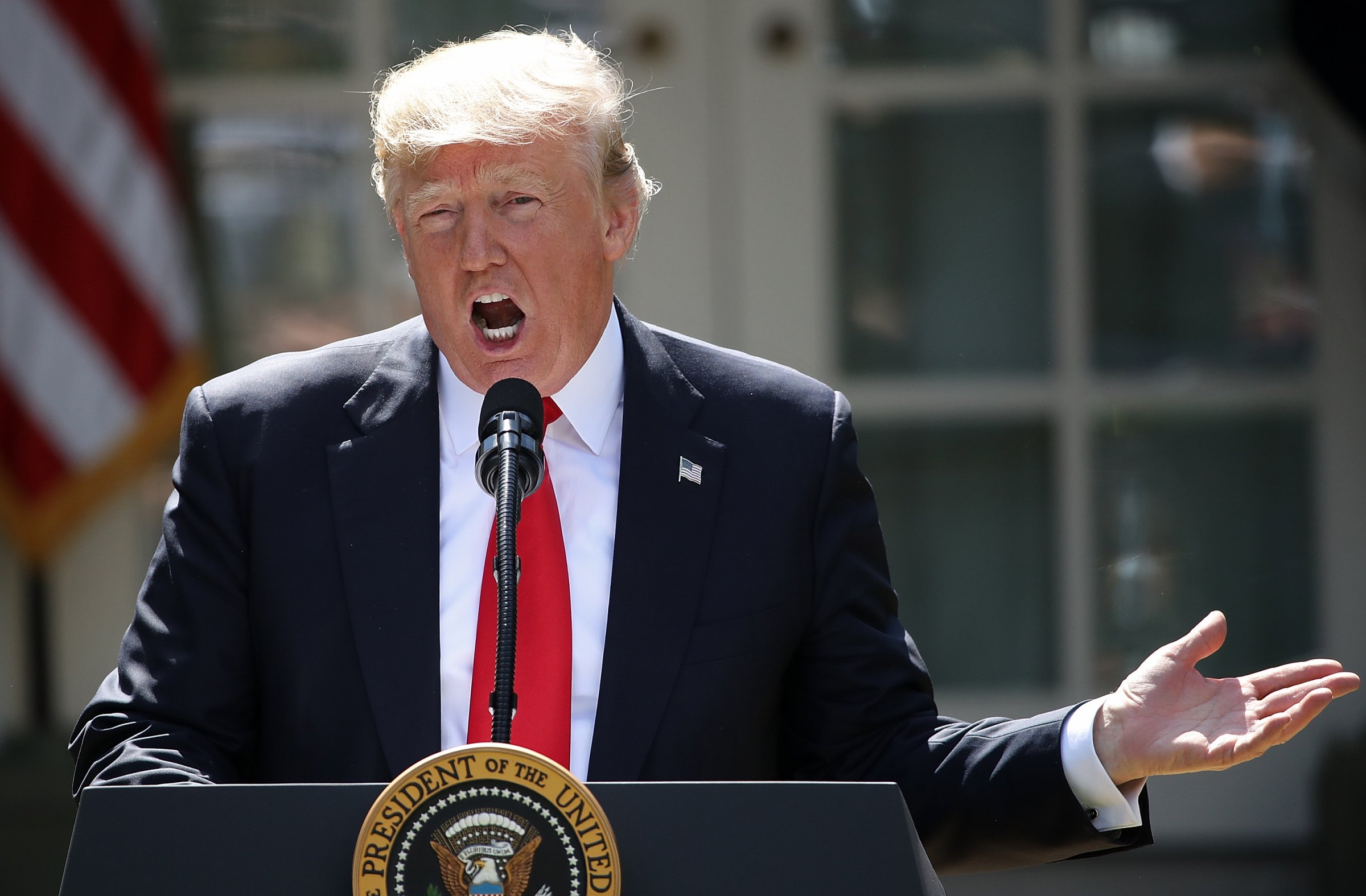
President Trump has listed his decision last June to withdraw from the Paris Agreement on climate change high among his first-year accomplishments, describing the deal as “totally disastrous, job killing, wealth knocking out” at the Conservative Political Action Conference on Friday.
But Trump might shift gears when the politics behind it change and has suggested to foreign counterparts that he would be open to keeping the U.S. in the agreement under the right terms, a former White House aide told TIME this week.
“The president talks about it when he’s in meetings with foreign leaders overseas,” says George David Banks, a former White House energy and environment adviser. “It’s not scripted. He’s not using talking points prepared by staff. He says it because it’s what he believes. He’s interested because he likes the idea of working out a better deal.”
Banks, who resigned last week after he was informed that he would not receive a permanent security clearance as a result of his past marijuana use, suggested that Trump could use returning to the Paris Agreement as a talking point in the 2020 election to appeal to moderates. It also would boost U.S. as it hosts that year’s G7 summit, says Banks.
“The president can walk out of his meeting with G7 Heads of State and say ‘I renegotiated the Paris Agreement,’” says Banks. “He takes it off the campaign and scores points with independents.”
But Trump would not actually be renegotiating the global deal, which won the unanimous support of more than 190 countries when it was brokered in 2015. Instead, Trump would likely revise downward the U.S. pledge to reduce greenhouse gas emissions. Under President Obama, the U.S. said it would reduce greenhouse gas emissions by as much as 28% by 2025 with that reduction achieved in part through policies like the now-defunct Clean Power Plan. Trump could simply promise to meet current projections from the Energy Information Administration that show energy-related greenhouse emissions leveling off by the middle of the century.
Such a move would allow Trump to claim that he had renegotiated the global deal on terms more favorable for the U.S., even though climate policy experts generally agree that countries can revise their commitments downward without any special renegotiation. That would remain in keeping with Trump’s rhetoric about the U.S. only participating in global deals if it benefits the U.S. economy.
“It would have been a disaster for our country,” Trump said at CPAC. “They basically wanted to take our wealth away.”
Still, Trump remaining in the Paris Agreement at that point might be a Pyrrhic victory of sorts. Setting a lower greenhouse gas reduction target is not in keeping with the spirit of the global agreement. The deal calls for countries to periodically strengthen their targets and recent research suggests that countries’ commitments fall short of the deal’s goals. Moreover, many diplomats engaged on climate change policy have come to doubt that Trump’s behind-the-scenes offer to reengage on the Paris Agreement is made in good faith.
“It may leave a few people guessing, but it doesn’t buy you back your credibility,” said former Secretary of State John Kerry last year of the administration’s flirtation with reengagement. “It doesn’t put you at the table the way the United States should be.”
More Must-Reads from TIME
- Donald Trump Is TIME's 2024 Person of the Year
- Why We Chose Trump as Person of the Year
- Is Intermittent Fasting Good or Bad for You?
- The 100 Must-Read Books of 2024
- The 20 Best Christmas TV Episodes
- Column: If Optimism Feels Ridiculous Now, Try Hope
- The Future of Climate Action Is Trade Policy
- Merle Bombardieri Is Helping People Make the Baby Decision
Write to Justin Worland at justin.worland@time.com